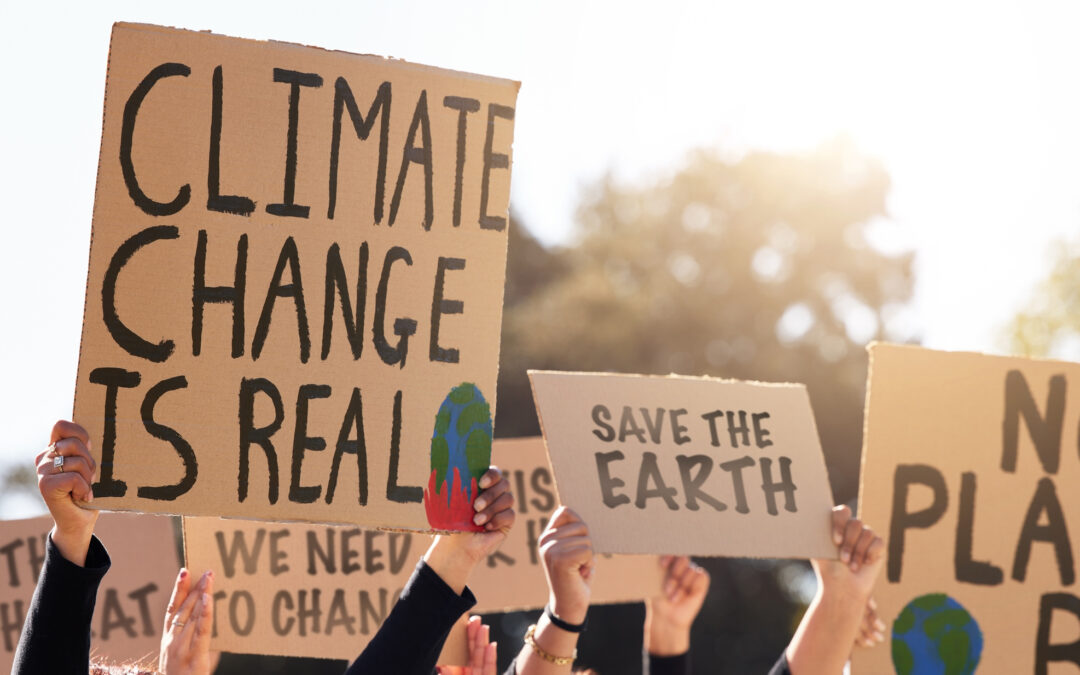Hope, Action, and Climate Advocacy
“I thought I couldn’t make a difference because I was too small.”
-Greta Thunberg
We live in the age of information, which means it is increasingly difficult to limit one’s access to breaking news. More and more we are seeing headlines about wildfire evacuation, record flooding, and heat waves. It is well-established that climate change is a threat to our physical health, and we are starting to see data about its negative impacts on mental health.
The term climate anxiety, or eco-anxiety, was first studied as a phenomenon in 2007, though began to receive more attention around 2017 after Greta Thunberg publicly spoke about her own anxiety relative to climate change. A September 2021 survey asked 10,000 respondents from ten countries across the world about their fears related to the environment and found that nearly 60 percent were either ‘very worried’ or ‘extremely worried’ about the climate. Climate anxiety is especially common among children and young adults. In some universities, over 70 percent of students described themselves as suffering from eco-anxiety. If this is something you have personally experienced, you are not alone.
Although the effects of climate change are far-reaching, it is important to note that advocacy at the individual level makes a difference. There is hope in knowing that climate anxiety is not a standalone mental health condition, largely because it is defined as an adaptable response to a distressing situation. Discomfort is a change agent and a motivator, though mindfulness is important. When anxiety turns into overwhelm, it can show up as conflict avoidance or a freeze response. This can lead to a sense of hopelessness about the future and about one’s own ability to make a difference.
If you are someone who experiences anxiety about the future of our home, and find yourself at a loss, below are some suggestions for sustainable advocacy –
1. Focus on what you can control
-
-
Research and participate in local organizations, initiatives, or volunteer opportunities
-
Write or call your legislators, encouraging them to act in defense of the environment
-
Consider ways you can engage in consumption more sustainably (composting/recycling)
-
Donate to organizations you care about, if you are able
-
Have conversations with your friends and family members about your thoughts and feelings
-
2. Avoid burnout
-
-
As stated earlier, anxiety when left uncared for can lead to overwhelm. Get curious about your own anxiety and take note of your freeze responses
-
Give yourself full permission to take breaks from the Internet to recuperate and practice self-care; this will allow you to avoid burnout and return to advocacy when you are able
-
3. Practice self-compassion
-
-
Remember: Your anxiety makes sense and is an adaptable response to an unsustainable situation. Consider ways you can mindfully process your emotions through journaling, talking with a therapist, physical movement, art, or gardening
-
Getting outside does wonders for our individual and collective mental health. Get curious about ways you can plant flowers, access hiking trails, or any other hobbies you enjoy that can be done outside. When you take care of yourself, you have internal resources to pull from when you feel called to take care of the world around you.
-
Ready to take the next step?
Contact us today to learn more about our Counseling services and how we can help you process climate anxiety.

Get Outside For Your Brain
When I am among the trees, Especially the willows and the honey locust, Equally the beech, the oaks and the pines, They give off such hints of gladness I would almost say they save me, and daily. Excerpt, "When I Am Among The Trees" by Mary Oliver We live in a world...

Managing Depression alongside Chronic Illness
If you’re reading this, chances are you or someone you care about is dealing with the challenges of chronic illness or disability, which can often trigger feelings of depression. Today, we’re going to dive into some strategies for navigating this journey with...

The Power of Community in Trauma Survivorship
Consistent across human history has been the importance of community. Safety in numbers against a predator, the sharing of resources, or simply holding space for one another are all integral to our survival. Yet, largely, our individualistic culture places emphasis on...

Mindfulness Mastery: Your Ultimate Weapon Against Depression
Depression can feel like a heavy cloud hanging over your life, making it difficult to find joy or motivation. While therapy and medication are valuable tools in treating depression, incorporating mindfulness skills into your daily routine can offer additional support...

From Pain to Power: The Narrative Trauma Therapy Experience
In the journey of healing from trauma, the power of storytelling is often underestimated. Yet, within the realm of mental health counseling, narrative trauma therapy stands as a profound method for fostering healing and resilience. By harnessing the narrative of one's...

